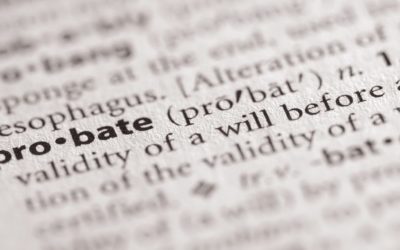Can I Challenge a Will?
To challenge a will, there are legal avenues available to you. It is important to note that you can’t just challenge a will because you don’t like what’s in it. There has to be some sort of legal basis for your challenge, and you have to be prepared to present evidence to back up your challenge.
Legal Reasons to Challenge a Will
There are four circumstances in which there is a valid legal basis for challenging a will. Let us take a look at these scenarios.
1. Lack of testamentary capacity
Any person who signs a will must have “testamentary capacity” in order for that will to be valid. This means that the testator (the person who signed the will) is of sound mind, and fully capable of understanding the nature of their estate and the decisions they are making in the document they’re signing. A “strong” or legible signature does not mean one has capacity.
It can be difficult to prove a lack of testamentary capacity. Even a person who has some early stages of dementia can still be considered to have testamentary capacity if they mostly experience lucidity. a doctor’s visit or determination of incapacity very close to the time of the will signing is needed, otherwise it can be extremely hard for a will challenger to prove it was lacking.
2. Improper signatures
The most common reason wills are invalidated is due to a failure to follow proper procedures, such as ensuring the will is signed in accordance with state laws. In Massachusetts, the will must be signed by the testator in the presence of two witnesses, who must be in the same room at the same time and who all must watch while each other are signing.
A lack of signatures or a failure to follow the proper protocol for getting those signatures can result in the will being invalidated.
3. Fraudulent will
A fraudulent will is one in which the testator was fraudulently induced into signing. Perhaps they were told it was a power of attorney or other type of document rather than a will, and they signed it. Perhaps some of the terms of the will were changed around without the testator’s knowledge. In any case, a fraudulent will is an invalid will.
Fraud is difficult to prove, though, because the testator will not be around to testify as to what they thought was in the documents they were signing. Witnesses will be necessary, and any witnesses with potential knowledge may not be willing to tell the truth.
4. Undue influence
If the testator grew mentally or physically weak in their final days and therefore susceptible to potential influence, it is possible that undue influence may have played a role in the creation of the will. The challenger must be able to prove that the alleged influencer was able to exert pressure to the extent that it put the testator into duress, to the point where it caused them to lose their free will and rely on the influencer.
It is not enough to show the influencer engaged in threats, nagging or verbal abuse. Proof of undue influence will usually require proof of more extreme actions on the part of the influencer, including consulting with the testator’s attorney, or purposefully attempting to isolate the testator from family members or trusted friends.
Next Steps
For more information about circumstances in which a will can be challenged and to make sure your will is legal, contact an experienced estate planning lawyer at Baker Law Group, P.C.
We offer an initial complimentary consultation.
To schedule a consultation:
Call: 781-996-5656
Email: info@MBakerLaw.com




